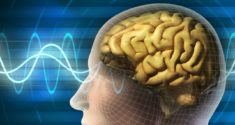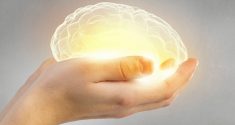It really is amazing how modern science continues to prove just how important our most basic day-to-day decisions are to overall health and well-being. In other words, we are learning that we have more power over our health than we may realize. Simple lifestyle choices can make a real difference. Fascinating recent research suggests that meal timing affects mental health and mood.
That, in combination with evidence that what you eat also impacts mind and mood, means that you can develop a daily dietary strategy to help you to feel your best and promote optimal mental health.
How Meal Timing Affects Mental Health
 According to a study published in the peer-reviewed, open access journal Nutrients, irregular meal timing is associated with a higher risk of experiencing neuroticism, sleep disorders, depression and difficulty managing stress. A study published in the American Journal of Public Health noted that shift workers, a group that commonly experiences irregular meal timing, have higher rates of depression, anxiety and other mental health problems. Other researchers have noted that irregular meal timing is a feature of a number of mental disorders, including bipolar disorder.
According to a study published in the peer-reviewed, open access journal Nutrients, irregular meal timing is associated with a higher risk of experiencing neuroticism, sleep disorders, depression and difficulty managing stress. A study published in the American Journal of Public Health noted that shift workers, a group that commonly experiences irregular meal timing, have higher rates of depression, anxiety and other mental health problems. Other researchers have noted that irregular meal timing is a feature of a number of mental disorders, including bipolar disorder.
The connection may lie in the circadian rhythm, or rather in its disruption. That roughly 24-hour cycle helps to regulate the timing of near countless bodily processes, including the complex chemical interactions and reactions involved in digestion; the transforming of food to the energy both brain and body need. The circadian rhythm is linked to the cycle of day and night, a rhythm that we, as well as all life on earth, evolved in tune to. Interestingly, chronic circadian rhythm disruption is also associated with a higher risk of mental health disorders, including mood disorders.
While light is the primary environmental cue for the circadian rhythm, meal timing also has a role in helping to regulate the circadian rhythm. Irregular meal timing can be disruptive to the circadian rhythm and to mental health in a variety of ways. Prior to the advent of artificial lighting, back in our more agrarian days, the vast majority of people were active during the day and rested at night. Many activities, including food preparation, were of necessity done when there was light. For generations prior to our industrialized, modern lives, the main meal was eaten around midday, fueling the day’s labor. Today, we tend to live and eat outside of the rhythm we evolved to; outside of how our bodies were designed to operate.
Part of the impact of irregular meal timing on mental health may lie in the disruption of the timing of digestive processes. That is because those processes involve the action of a variety of digestive hormones which in turn impact neurotransmitters, such as dopamine, influencing mood and energy levels.
Serotonin, another neurotransmitter impacting mood, is made primarily in the gastrointestinal tract, with about 95 percent of it being produced there. Regular meals help to keep these complex processes balanced, helping you to feel better and more balanced.
What You Eat Also Plays Important Role
In the United States, it turns out that the acronym for the highly processed culinary nightmare that has become the Standard American Diet (SAD) is pretty accurate. The SAD, with its excessively processed foods, high fat and sugar, bad carbs (as opposed to more complex and higher quality carbs), low fiber and poor nutrition, is associated with a higher risk of mental health problems. Although many other countries may tend to eat more healthily in general, the risks of eating poorly or deviating from a more natural diet are relevant worldwide.
It’s a logical connection, if you think about it for a moment. Complex chemical interactions and reactions are at the base of our moods and overall mental health. Numerous factors go into keeping correct balance and correct timing in the production, release and flow of hormones, neurotransmitters and other mood and mental health impacting substances within the body. When the diet is poor, lacking in nutrition and full of unhealthy substances, of course there are likely to be imbalances and problems.
Eat in Line With Your Body’s Design
Eating at regular times, preferably during the day to fuel your activities, can easily transition to intermittent fasting. In both animal testing and human testing, intermittent fasting has been shown to reduce depression and anxiety symptoms. Naturally, further studies are needed for a more in-depth understanding of the specific mechanisms involved, but the body of supporting evidence is increasing. Intermittent fasting schedules basically mean limiting your calorie intake to specific hours of the day.
Some people schedule their meals over a 12-hour period, some over an eight-hour period and others over a six-hour period, fasting the rest of the time. Aside from mental health benefits, intermittent fasting offers a broad range of health benefits, including weight management, increased fat burning, improved blood glucose levels and better heart and brain health.

Plan for Better Mental Health
Consistency is key when it comes to meal timing. Set a schedule and stick to it. Never skip breakfast. Take it to go if need be. Try to consume the bulk of your calories during the day, avoiding heavy, carb rich evening meals.







